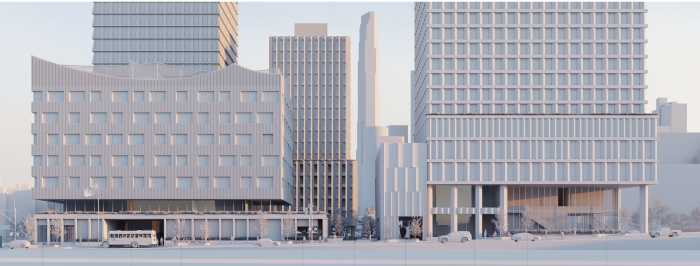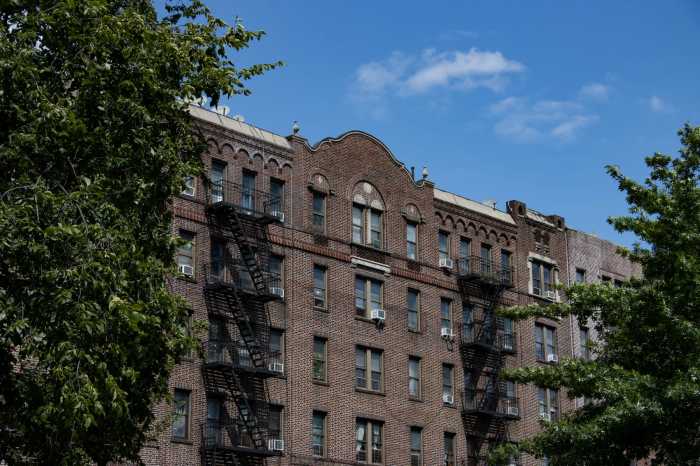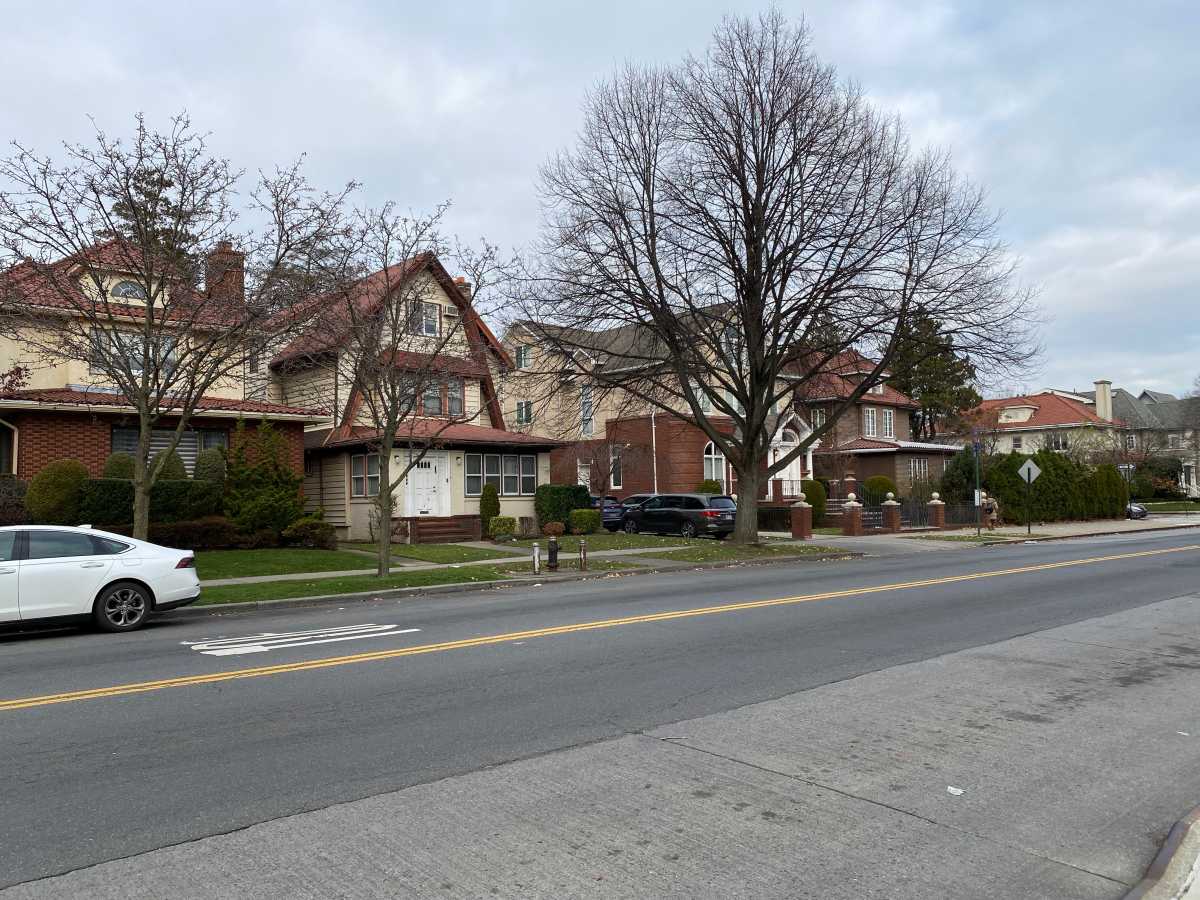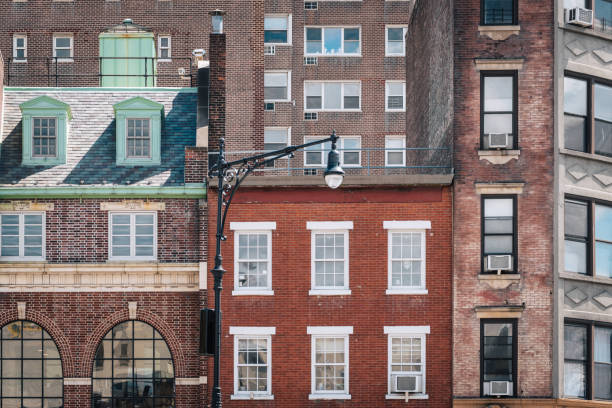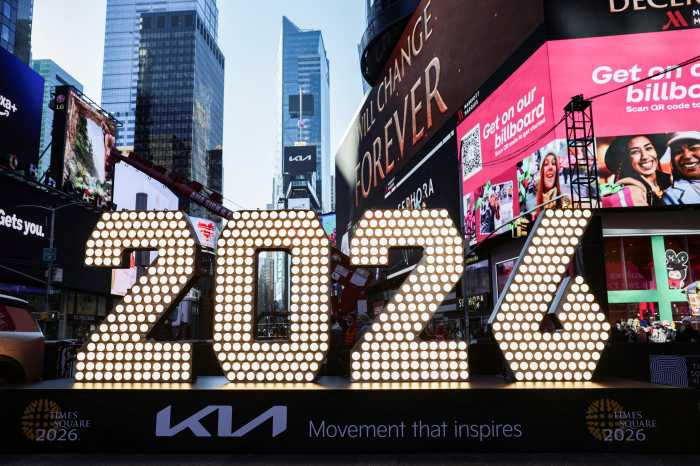There is one unavoidable conclusion written between the lines of this week’s Chamber of Commerce report on our local economy: Brooklyn needs Wal-Mart.
We agree, with some fairly significant — and easily met — caveats.
• • •
With a ring of suburban-mall-style locations encircling New York City, Wal-Mart has been in search of the “right” location for its first entry into the city. So far, it has met fierce opposition in Queens and Staten Island — and undoubtedly the Bentonville behemoth anticipates a bruising fight in Brooklyn.
The debate over Wal-Mart is healthy. But even healthier would be to encourage Wal-Mart to open in Brooklyn — in the right place, with a suitable design, and with proper respect paid to Brooklyn workers.
Whichever borough captures New York City’s first Wal-Mart could benefit richly. Because Wal-Mart is trying to enter urban markets throughout the country — and meeting strong resistance — the company is highly motivated to “do the right thing” here.
As the song goes, making it here — in other words, doing an urban store right — will mean Wal-Mart can make it anywhere.
And if the company does the right thing in Brooklyn, the whole country will hear about it.
• • •
The best location for New York City’s first Wal-Mart is Downtown Brooklyn.
The area is well served by public transit, has reasonable vehicular access, and is surrounded by blooming residential neighborhoods with hundreds of thousands of potential shoppers.
City planners have already carved out Downtown as a warren of tall office buildings — and, as the Chamber report shows, people typically shop where they work. If more office workers are coming to Downtown Brooklyn, Brooklyn needs to capture their spending money.
A Wal-Mart drawing shoppers to Downtown could well enhance the profitability of many nearby businesses, whereas a Wal-Mart placed on the borough’s periphery — say, in the Caesar’s Bay shopping plaza in Bensonhurst or near the Gateway shopping center at Spring Creek — would create a great “sucking sound” away from Downtown.
A Downtown site would give the chain its best “big city” test. Let’s face it, Rego Park, Queens, and the southern tip of Staten Island are hardly ready-for-prime-time, “big city” venues that would show off the new, urban face of Wal-Mart.
• • •
Wal-Mart’s standard one-level big-box store with an endless parking lot won’t fit in Downtown.
Wal-Mart has already modified its design in other locales, but in Brooklyn, the opportunity for revolutionary change in the store’s design, transit connections and delivery options is compelling, and would set the stage for Wal-Mart’s urban future.
• • •
What about Wal-Mart’s labor practices? Consider this: the Chamber report finds Brooklyn’s unemployment rate at rock bottom — just 5 percent. This is not Oskaloosa, Iowa; In Brooklyn, Wal-Mart would not find qualified staff willing to work for sub-par wages and sub-par benefits.
Brooklyn presents Wal-Mart with the perfect opportunity to face its critics head on by paying fair wages and offering fair benefits. The company won’t be able to staff its store any other way.
• • •
We are concerned about the company’s record on free speech issues.
Most New Yorkers are unaware that Wal-Mart is one of America’s biggest sellers of books and CDs, and when the chain’s Arkansas-based sachems are offended by a racy new book or a gritty rap album, elements of our shared culture are pulled from Wal-Mart shelves.
This may not be a problem elsewhere, but we can’t imagine Wal-Mart giving Brooklyn an exclusive diet of Rush Limbaugh, Ann Coulter and born-again inspirational tomes, and refusing to carry albums by Nirvana, Godsmack and even Sheryl Crow, along with the best-selling book by Jon Stewart, “America.”
• • •
In the end, the market will rule.
With the proper political and civic leadership, Brooklynites are likely to bring changes to Wal-Mart’s culture far more significant than the changes Wal-Mart will bring to ours.
Wal-Mart and Brooklyn? Fuhgedaboudit!
Editor’s Note: Our recent editorial on a large, Arkansas-based big-box retailer’s suitability for Downtown generated, oh, how should we put it?, a fair amount of hostility towards the editorial board. Since many of the dozens of letters we received made the same points — with differing expletives, of course — we thought we’d present excerpts in a concise, readable format. For those of you who detest Wal-Mart, enjoy.
“Your editorial was hard to believe. You gotta think outside the BIG BOX brother! Most people know that Wal-Mart burdens taxpayers, doesn’t pay a living wage, busts unions and mistreats women, fills the shelves with sweatshop products and kills independent shops that make healthy neighborhoods.”
Bill Talen, Windsor Terrace. The writer is a performance artist known as the Reverend Billy.
“A new Wal-Mart in Downtown Brooklyn would not generate new business for the area. Rather, like most other big-box stores, it would capture business from the retailers already in the area, draining profits from the local economy and funneling them into what is already the largest corporation in the world. We’d be much better off focusing on home-grown businesses with stronger ethics and ties to the community.”
Gwen Kash, Bushwick
“Wal-Mart’s ‘unbeatable’ low-prices are the result of slave labor overseas and outsourced manufacturing to Third World countries. Mom and Pop shops give neighborhoods character, so every neighborhood doesn’t look like a suburban mall. If you want to live in a mall go ahead! I moved to New York to get away from suburbia.
“Wal-Mart refuses to pay its workers a living wage and your money and mine pays their healthcare and childcare costs. And they have stopped every major bill to make our ports more secure because higher costs for overseas shipping would cut into their bottom line.”
Michele Smith, Park Slope
“Wal-Mart needs Brooklyn a lot more than Brooklynites need the overfed retailer. The company has saturated the market in its rural and exurban base and desperately needs a presence in urban markets in order to maintain its Gremlin-like growth and keep its shareholders happy. Why not offer Wal-Mart a challenge? Come to Brooklyn under the following condition: That its workers will be allowed to unionize. One of the so-called bedrock values of Wal-Mart, enshrined by its founder Sam Walton, was ‘respect for the individual.’ Well, why not respect an individual’s right to collective bargaining?”
John Dicker, Denver (via Cobble Hill.) The writer is author of “The United States of Wal-Mart” (Penguin)
“Let’s keep Brooklyn, Brooklyn. Wal-Mart does not hold nor project the values of Brooklyn.
“Brooklyn has been built on small-business activity, and city government has a fiduciary responsibility to protect these businesses. It is not good enough that Wal-Mart could work, as you put it, in Brooklyn. What we have now is a thriving and valuable small business atmosphere; unique and growing in value. Why would we want to give this up? Say no to Wal-Mart in Brooklyn, forever.”
Charles W. McMellon Jr., Park Slope
“OK, guys, you have lost it. I have read your disparaging reviews of Bruce Ratner and others, but Bruce is a New Yorker. I am shocked you have endorsed Wal-Mart. I guess trailer parks are next. There is nothing good that comes from Wal-Mart except tacky over consumption. If your paper was not free, I would not bother to read it.”
Tracy Tucker, DUMBO
“A year ago I wrote in The Papers that if Wal-Mart had to come to Brooklyn, it should come to Downtown, rather than to a remote, auto-dependent mall — but do we really want Wal-Mart at all?
“Less publicized are its monopolistic business practices — driving thousands of suppliers into bankruptcy and beating their 61,000 remaining suppliers in collusive manipulation of entire industries. To serve Wal-Mart’s pricing demands, businesses cut employees and benefits or just move the jobs overseas.
“Wal-Mart’s predatory pricing has forced tens of thousands of small businesses across America to close down. Thousands of small towns have been boarded up. New York City, and Brooklyn most of all, may be the last bastion of true neighborhoods, the walking communities that planners across the nation seek to emulate. Brooklyn is thriving without Wal-Mart. New Yorkers don’t need to feed this greedy and dangerous monopolist monster.”
Brian Ketcham, Cobble Hill
“Wal-Mart is not good for Brooklyn, or anywhere else, for that matter! Do not be bamboozled: Their sales personnel are trained to steer customers to the higher-priced models. They take advantage of government benefits by not giving their employees appropriate benefits. Don’t fool yourself that they will let Brooklynites change their employment practices. They do not deserve to locate here in Brooklyn. I shop at the discount stores in my wonderful neighborhood.”
Karen Ranney, Kensington
“Wal-Mart has met fierce opposition in Queens and Staten Island, and rightly so. When workers in Quebec succeeded, despite intimidation, in organizing a union, Wal-Mart closed the store. Despite the largest class-action suit by 1.6 million female employees for sex-discrimination, and several other class-action suits charging racial discrimination and refusal to allow meal breaks and non-payment of overtime, there has been no improvement in worker benefits. In Inglewood, California, Wal-Mart tried to exempt itself from environmental, traffic and zoning laws. Let Wal-Mart demonstrate its willingness to change, by offering fair wages and benefits to its current workforce, before we even think of letting them into Brooklyn.”
Shirley Ranz, Gerritsen Beach
“Your editorial is great news for consumers. Once opened, Wal-Mart offers employment opportunities for many workers. Students, housewives, senior citizens and ordinary people out of work could find employment locally without having to travel one to two hours elsewhere. All of these companies and their employees are our neighbors. Starting pay is between $7.15 and $10.30 per hour for new employees. Promotional opportunities including training for higher paying managerial positions are common. They also offer health care and other benefits. Wal-Mart may actually pay higher salaries and offer more benefits than some of its competitors. The free enterprise system made our nation great. Economic growth and the creation of wealth come from businesses — small and large. Consumers shopping at Wal-Mart get a better bang for the buck.
“The silent majority of New Yorkers defies its elected officials and wants Wal-Mart in New York. Many New Yorkers — poor, working class, single household and fellow middle class people — need the great prices and quality merchandise that Wal-Mart offers. Consumers have voted with their feet all over America.”
Larry Penner, Great Neck


